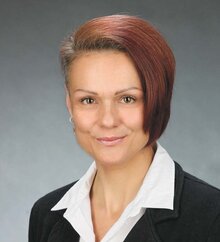By Henriett Wilke
Toujours la France!

Henriett Wilke studied at Aix-Marseille III with Erasmus in 2008 as part of her degree programme at HU Berlin, and completed foreign language assistantships in La Réunion in 2011 and in Normandy 2016. She is currently a primary school teacher, deputy headteacher, Erasmus+ coordinator and about to go to Brest as part of the Elysée Prim programme.

Through the Erasmus programme, Henriett Wilke studied at the Université Paul Cézanne Aix-Marseille III, which merged with the Aix and Marseille universities to become the Université Aix-Marseille in 2011.
The lasting impact of time spent abroad
An Erasmus year in Aix-Marseille in 2008 and two foreign language assistantships on La Réunion in 2011 and in Normandy in 2016 were experiences that shaped the way I saw myself and the world, enabling me to develop flexible, creative, sometimes unconventional approaches. By comparing different learning and teaching settings, I was able to recognise the advantages and disadvantages inherent in the education systems, which in turn made me more aware of the conditions of these systems.
Today, I have a more relaxed approach to my work, which comes from my experiences with interpersonal and intercultural exchanges. This helps me put into perspective perceived problems in my personal and professional life, and makes me more resilient. It’s important to remain curious, to understand the underlying structures of any system and ultimately to navigate these systems in a positive and constructive way.
Importance of various competencies in leadership applicants for driving change
Percentage of companies for which the respective competency is considered particularly important. Basis: companies that employ academics or plan to do so.
Question: «How important is it for your company that applicants for management positions possess the following competencies?»

Impacts on professional life
I believe that the success of an individual’s career depends largely on their personality, which in turn is shaped by their life experiences. Key traits I consider fundamental, regardless of nationality, are a genuine interest in and ability to listen to others, irrespective of age, background and motivation; not taking oneself too seriously, thinking outside the box, being proactive, showing respect and maintaining a positive attitude, and demonstrating commitment, discipline, gratitude, humility and a sense of community.
In 2019, my broadminded outlook enabled me to transition from secondary school to teaching sports at a primary school, a process regulated by the education authority in the state of Saxony. My natural curiosity and background in competitive sport brought me to my current school. In my first year there, the school’s very dedicated headteacher was looking for an Erasmus+ coordinator, and I was happy to step into that role.
Thanks to our teamwork on the project, the successful bid and the retirement of the deputy headteacher, I was promoted to deputy head within one academic year. This had never been my plan, but my time abroad obviously helped me develop leadership skills in certain areas, which I hadn’t recognised before, and which are very clearly linked to my time in France.
Henriett Wilke spent time in France with Erasmus+ in 2008/2009.